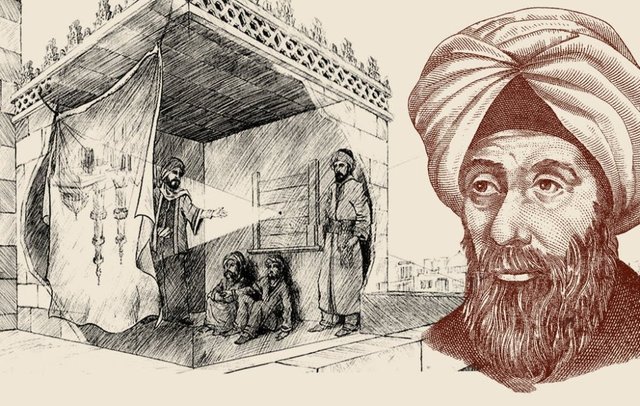Hasan Ibn Al-Haytham " Alhazen "- ( The Father Of Modern Optics )
The Life of Ibn al-Haytham
Abu Ali al-Hasan ibn al-Haytham was born into a Muslim family in about 965 AD in the city of Basra in the Buyid emirate, now in Iraq. Just as Mikolaj Kopernik is known by his Latinized name Nicolaus Copernicus in the west, al-Hasan’s name is often Latinized to Alhazen. Although a number of later artistic representations of him exist, we do not know what he really looked like.
Ibn al-Haytham became a government minister (vizier) in Basra and spent his spare time working on mathematics, writing a treatise on the ancient (and impossible) problem of squaring the circle.
Ibn al-Haytham believed in God. He weighed the differences between the religious sects around him in Basra, concluding that he favored the absolute, provable truths of mathematics and the philosophy of Aristotle to the conflicting claims made by the sects.
Dark Room of Ibn al-Haytham
"If I am given the opportunity, I have a solution to control the Nile flood." (Ibn al-Haytham)
Starting from this source, Ibn al-Haytham's new life in Egypt began. His reputation as a famous scientist in Basra was heard until Egypt. He grew up as a scientist who lived in the era of school and the library was so victorious in Islamic civilization. At that time, mathematics, astronomy, optics, and physics had been intensely worked on by predecessors such as Aristotle, Euclid, Ptolemy, Al-Kindi, Banu Musa, Thabit ibn Qurra, Ibrahim ibn Sinan, Al-Quhi, and Ibn Sahl.
At one time, the rulers of Egypt under the Fatimid dynasty invited Ibn al-Haytham to Cairo to prove his boasting of the Nile River. With all its considerations, Ibn al-Haytham finally could not support it. He also realized the consequences of severe punishment were ready to wait. He pretended to be crazy, to get a light sentence. Egyptian authorities finally only placed him under house arrest.
But this is where history begins. Ibn al-Haytham found important findings when in a dark room, when light penetrated from the point of a small hole into his room. He can see images on objects outside that are lit by sunlight. Feeling curious, he then carried out various experiments, until finally concluded the light was moving straight, and the view occurred when straight light entered the eye. The idea was considered as something very new at that time. The finding then took him free from punishment. Ibn al-Haytham breathed his last in 1040 AD or 55 years before the First Crusade raged.

Al-Haytham’s experiments with the Camera Obscura (a pinhole projection of a camera-like image on the far wall but upside-down demonstrates that light moves in straight lines.